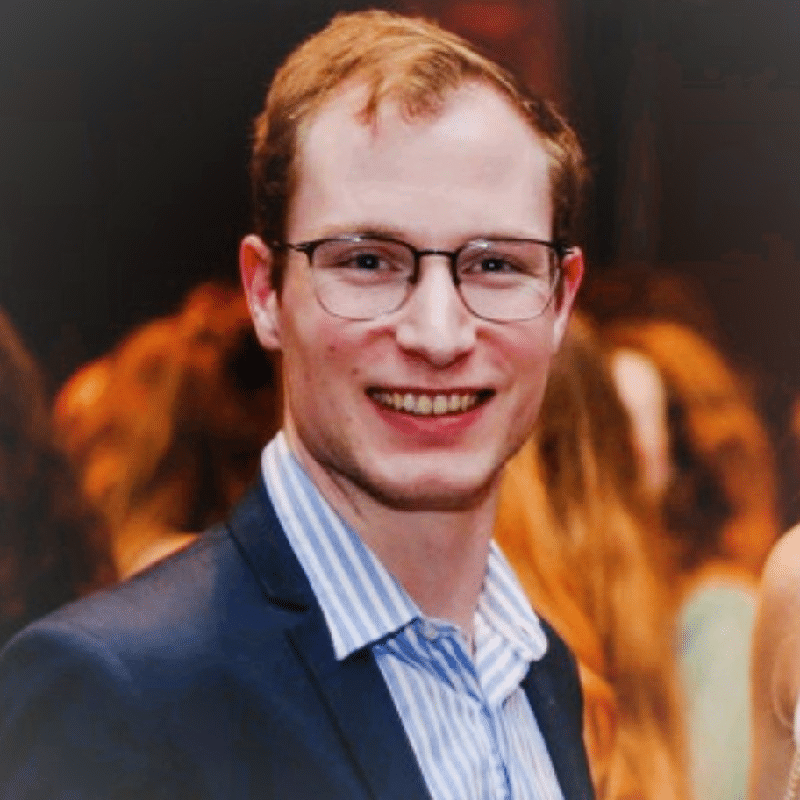
UK Summer School , 2011
Neil McCallum
Senior Translation Project Manager
Neil took part in a Sutton Trust Summer School in 2011 and went on to study languages at university. Having studied and...I grew up in Finchley, North London. It’s suburban north London with pockets of wealth and areas that are a bit more deprived. It’s pretty ethnically diverse, like most of London.
My background is Afro-Caribbean. I would describe us as lower-middle class. My parents didn’t go to university. They owned their own home. We didn’t have a lot of money, but equally I wouldn’t describe my upbringing as deprived. My parents always encouraged us to do well at school and supported us as much as they could.
My parents did skilled-manual jobs. My mother was a make-up artist and hairdresser, and my dad was a computer technician.
I got into a grammar school aged 11. I went to a ‘good’ school which was very academic. We were all encouraged to consider university in the future.
My parents were supportive of all my ambitions. I applied to the Sutton Trust programme because, although I felt sure that I wanted to go to university, I was nervous about the experience. I didn’t know anyone whose experience I could draw on. I was also interested in Oxbridge but unsure that I had what it took to be a credible applicant.
I did a summer school in Classics at Oxford. I was inspired by several things – enjoying the interaction with the teachers and lecturers and realising that I could keep up with the level of teaching, speaking to students and realising that many of them were ordinary people too, and spending time with the other course participants and supporting each other – realising together that we could thrive at university and had something to offer.
During the programme, I gained the confidence and reassurance to believe that I could succeed at university, that I could use it to pursue my interests, and that I had something to offer a university – my ideas and perspective.
I studied Geography at Emmanuel College, Cambridge. I had a great time. Because of my involvement in the Sutton Trust, I volunteered constantly on widening participation programmes at Cambridge during my undergraduate degree, and I was ‘Access Officer’ at my college for a year.
During my undergraduate degree, I also did a lot of work experience that was targeted at people from non-traditional backgrounds. Without having had such a positive experience with the Sutton Trust, I wouldn’t have thought to apply to these schemes. I participated in two schemes with the Civil Service, from which I gained an interest in working for the Foreign Office.
I entered the Foreign Office in 2007, after successfully passing the Fast Stream. I have worked on a huge range of issues, including completing two roles overseas – in the Democratic Republic of Congo and Mexico City. I will be moving to Rome in April next year to work on bilateral political issues.
In 2016 I also studied for a Masters in Public Affairs at Princeton University, which was a wonderful experience. It was great to return to the classroom, and to draw on my professional insights.
The summer school gave me confidence to pursue my ambitions. Secondly, it made me committed to widening participation and promoting diversity in everything that I’ve pursued since. It also taught me to seek out and make use of the resources out there for people from non-traditional backgrounds – they can help us gain insight into the careers of our choice, build confidence, and develop techniques to navigate recruitment processes. The challenges don’t stop at university!
I didn’t end up pursuing the subject I studied at summer school but I think the summer school helped me to clarify that classics wasn’t for me, and therefore set me on a path towards social science and international relations that I’ve found very satisfying. I also recommended the scheme to others, including my own family.
The summer school gave me the confidence to apply to other schemes out there which helped me find the Civil Service and the Foreign Office – another exclusive, ‘elite’, not particularly diverse organisation that I knew nothing about. If I hadn’t participated in the Sutton Trust first, I don’t think I would have had the confidence to move so far out of my comfort zone.
If you’re considering a career in diplomacy you don’t have to already speak four languages and be active in a model-UN society! Instead choose activities that can demonstrate your interest in international issues – this could be anything from participating in debating groups to working for an export business to volunteering for charities. And find ways to develop skills that are valuable to diplomats – political awareness, persuasion and negotiation skills, working with others, and cultural sensitivity are all valued. Think creatively – by organising an event you could be using persuasion, negotiation and teamwork skills, for example. Travelling is also not essential – you don’t have to do a gap year or volunteer overseas – instead focus on activities you can do in the UK or around your studies that can demonstrate an interest in the wider world.
One final note – your experience doesn’t all have to be in the public or charity sector – the government also wants civil servants to have an understanding of business and trade.
Make use of work experience schemes targeted at people from non-traditional backgrounds – these are often paid, can offer really useful insight into different careers, and will look great on your CV!
Want to inspire students with your story? Get in touch with us at [email protected] – we’d love to hear from you.
Browse our library of alumni stories and continue to be inspired!